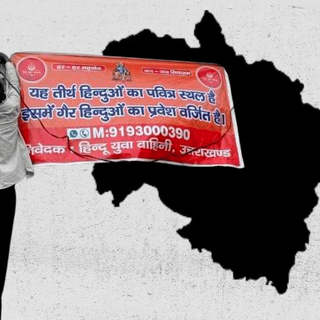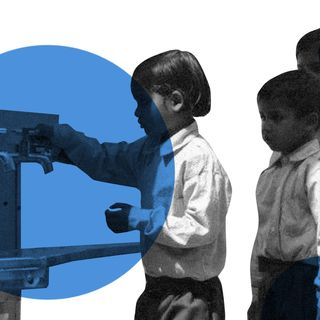More equitable property rights can help reduce domestic violence, a new study has found. Evenly distributing property rights between spouses not only helps reduce the incidence of domestic violence but also increases women’s condemnation of such violence.
“If women are financially protected outside of marriage, they in turn experience lower levels of violence inside marriage,” the study authors write. “… violations against women’s rights are often sanctioned under the garb of male-based cultural practices and norms. The required large-scale reforms and enforcements in the justice and legal system present an ongoing challenge, especially in developing countries.”
Globally, domestic violence affects one in every three women who have ever been with a partner. Domestic violence is the most common crime faced by women in India. In 2019, more than 30% of all criminal complaints registered by women in The National Crime Record Bureau were of domestic violence. This number skyrocketed last year, with the National Commission for Women announcing 2.5 times the typical number of domestic violence complaints during the lockdown and after. States such as Karnataka even saw one in every two women facing domestic violence during that time.
In such situations, marital property laws that allow a woman a substantial share of assets bolster her ability to negotiate and/or leave abusive situations. This holds true irrespective of whether she ultimately divorces her abusive partner, states the study.
Such rights also increase women’s condemnation of domestic violence, promoting a shift in societal norms that perpetuate violence against women, concludes the study. In contrast, property laws that leave women vulnerable when leaving a marriage render them more prone to abuse and fail to challenge attitudes about acceptable treatment.
The research, published in the journal Nature Human Behaviour, looked at data from Sub-Saharan Africa. But the situation is largely similar in developing countries across the world, the authors say, and India-based research by Bina Agarwal, Ph.D., bears this out.
Related on The Swaddle:
A Domestic Abuse Pandemic Is Ensuing Under Covid19 Lockdown
In India, in the event of a divorce, women are entitled to maintenance and shelter from their husbands, under Hindu, Muslim, and Christian family laws. But currently, women are not entitled to a share (equitable or otherwise) of co-owned or male-owned property, under any law in the constitution.
A World Bank report released last month emphasizes the positive impact of property ownership on Indian women’s lives, linking legislative reforms around women’s inheritance rights to a positive domino effect on girls’ education, marriage age, financial strength, and living conditions.
Still, research has found only 28% of women in India own land, with women-owned land only making up less than 2% of all agricultural land in the country.
Agarwal wrote in her book A Field of One’s Own: Gender and Land Rights in South Asia that land ownership can empower women economically as well as strengthen their ability to challenge social and political gender inequities. “In the late-1970s when landless women in two villages of Bodh Gaya in Bihar received titles in their own names for the first time, they said: ‘We had tongues but could not speak, we had feet but could not walk. Now that we have the land, we have the strength to speak and walk,’” Agarwal told Newsclick last year.




